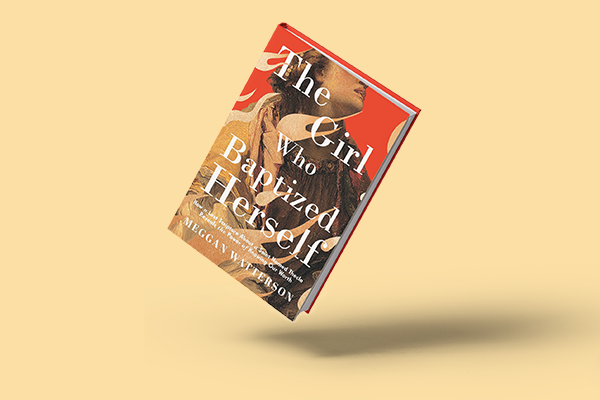BEING A YOUNG girl can be confusing. Perhaps you’ll be adored but not respected. Admired, but only if you suppress your inner longings and become the perfect vessel for your parents’ expectations. Silenced girls can grow to be silent women, stripped of agency, never taught that true power comes from deep within.
“The first time I read the New Testament as a little girl, I broke out in hives,” writes feminist theologian Meggan Watterson in her latest book, The Girl Who Baptized Herself. “With little girl clarity, I was finely attuned to detect inequity.” Into adulthood Watterson couldn’t shake the feeling that her received understanding of God was incomplete. Her understanding of God as a “love that liberates” simply didn’t align with the patriarchal and oppressive power structures she witnessed in the church. Then she discovered the story of Saint Thecla, a young woman who, after hearing the Apostle Paul preach, converted to Christianity and joined him in ministry.
The Girl Who Baptized Herself is a blend of memoir, historical analysis of early Christianity, and fictionalized inner narratives for Thecla. The story begins in Thecla’s bedroom, when she hears Paul’s preaching through her window. Thecla, born into wealth and status in Iconium (in modern-day Turkey), has lived a privileged life. When we meet her, she is soon to marry a powerful nobleman. But as she listens to Paul share the gospel, she sits motionless for three days and three nights. There is an inner shift; Thecla realizes that no matter how beautiful her life may be, a gilded cage is still a cage.
In stillness, she ignores increasingly desperate pleas from her mother and fiancé to turn away from the window. She’s there physically, but internally, Thecla has gone somewhere they can no longer follow — “existing now outside of the conditions they had set for loving her, for being in their lives.” She chooses to follow after Paul, to dedicate her life to “a love that asks her to be true to who she is within.”
But Thecla faces trial after trial that tests her newfound faith. In a scene where she has been sentenced to death by wild beasts, Thecla throws herself into a body of water and declares to the gathered crowd: “In the name of Jesus Christ I baptize myself.” As the story progresses, a powerless teenage girl awakens into an enlightened woman who learns to draw from an innate source of strength, the spirit of God within us all.
In Watterson’s telling, Thecla epitomizes “the ascendancy of the powerless.” Watterson shares the message for the sake of other women who have not yet learned how to believe in themselves.
There is an enduring appeal to this teenage saint’s story, someone written off by others who finds an unconditional source of love and power within herself. Thecla shines so brightly that others are inspired to seek after this same source of inner strength. She inspired me, too. After reading this book, I couldn’t help but fantasize about a dramatic self-baptism of my own, perhaps in the quiet bubbling stream of spring waters near my hometown. My body would submerge into the cold waters, and I would shed expectations, rising anew.

Got something to say about what you're reading? We value your feedback!

